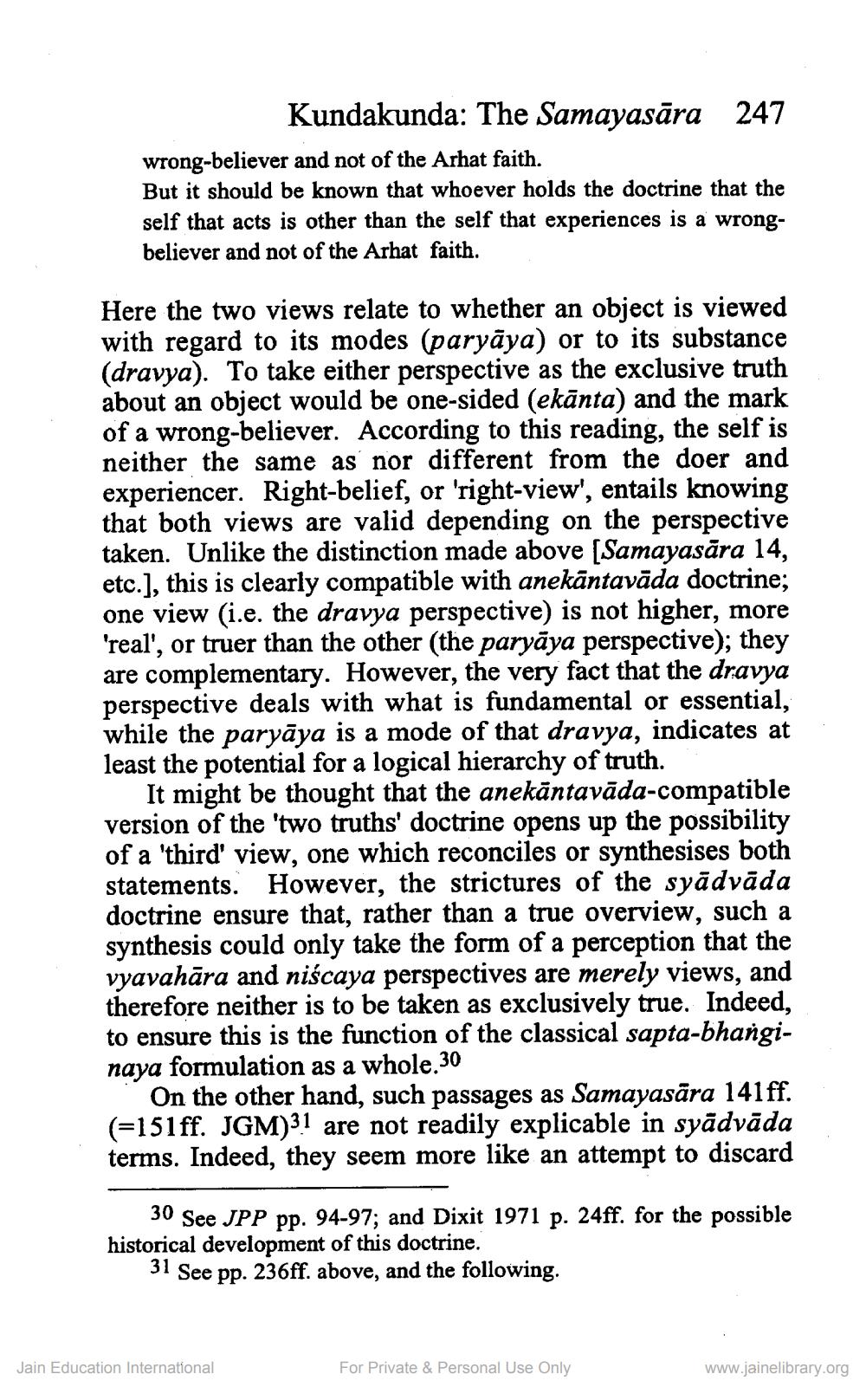________________
Kundakunda: The Samayasāra 247 wrong-believer and not of the Arhat faith. But it should be known that whoever holds the doctrine that the self that acts is other than the self that experiences is a wrongbeliever and not of the Arhat faith.
Here the two views relate to whether an object is viewed with regard to its modes (paryāya) or to its substance (dravya). To take either perspective as the exclusive truth about an object would be one-sided (ekānta) and the mark of a wrong-believer. According to this reading, the self is neither the same as nor different from the doer and experiencer. Right-belief, or 'right-view', entails knowing that both views are valid depending on the perspective taken. Unlike the distinction made above (Samayasāra 14, etc.), this is clearly compatible with anekāntavāda doctrine; one view (i.e. the dravya perspective) is not higher, more 'real', or truer than the other (the paryāya perspective); they are complementary. However, the very fact that the dravya perspective deals with what is fundamental or essential, while the paryāya is a mode of that dravya, indicates at least the potential for a logical hierarchy of truth.
It might be thought that the anekāntavāda-compatible version of the 'two truths' doctrine opens up the possibility of a 'third' view, one which reconciles or synthesises both statements. However, the strictures of the syādvāda doctrine ensure that, rather than a true overview, such a synthesis could only take the form of a perception that the vyavahāra and niścaya perspectives are merely views, and therefore neither is to be taken as exclusively true. Indeed, to ensure this is the function of the classical sapta-bhanginaya formulation as a whole.30
On the other hand, such passages as Samayasāra 141ff. (=151ff. JGM)31 are not readily explicable in syādvāda terms. Indeed, they seem more like an attempt to discard
30 See JPP pp. 94-97; and Dixit 1971 p. 24ff. for the possible historical development of this doctrine.
31 See pp. 236ff. above, and the following.
Jain Education International
For Private & Personal Use Only
www.jainelibrary.org




